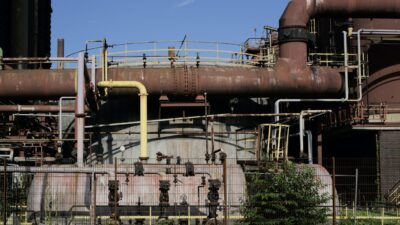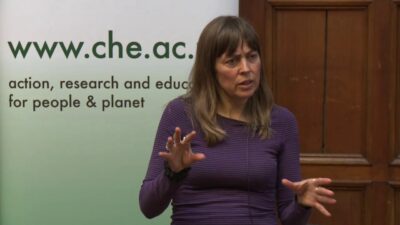Audio Chatcast: Alternative currencies – can we create our own money to build local economies that sustain us?
You can now listen to an audio ‘chatcast’ of CHE’s first event of 2014: a discussion on ‘Alternative currencies – can we create our own money to build local economies that sustain us?’.
Leading the discussion, and sharing his knowledge is CHE’s Walton Pantland, who works for Unite, the biggest union in the UK. Walton is joined around the table by CHE colleagues and members of the public who also contribute.
Walton is South African, and before coming to Scotland worked with trade unions and community groups in South Africa. He wrote HIV-Aids manuals for COSATU and the ITF, and worked on projects for Workers’ World Media Productions and Ditsela.
Below are Walton’s notes of the presentation he gave.
Alternative currencies
Economics has an exhaustive amount to say on the flow of money, but very little to say about what it is, and why we use it. It’s a medium of exchange, and a store of value.
It is also a commodity – a thing that can be bought and sold.
Without money, we would all be bartering with each other, right?
Wrong: there is no evidence for this. Before money, primitive societies:
• Bartered ritualistically, for instance to celebrate a treaty
• Bartering is only common in populations that used to have money – for instance, in prisons and refugee camps. And they quickly develop a currency – for instance, the cigarette
• Primitive communism
• With the rise of mercantile city states we had the rise in debt, with for example landowners paying tax in wheat after the harvest had come in.
Later, debt chits were exchanged, and became money.
However, for most of human history, most people had little to do with it, taking from the land what was needed and sharing labour.
Money as measurement. No one ever said “I can’t pour you a glass of water because I have run out of millilitres”. If we look at money in this way, the solution seems simple: just make more.
What does it measure? Our social obligation to each other
Money has no intrinsic value. It no longer represents anything real. We use fiat currency now, which means its value is determined by the state.
Almost all money nowadays is electronic – it’s just a system of accounting maintained by banks, and is not backed by anything real, other than the authority of the state and central bank . It is sustained by faith – so what do we believe in?
Types of alternatives
• Local currencies – the Bristol Pound, Brixton Pound
Best for keeping money local. Work best in highly specific environments with a strong local identity, because it needs buy-in from business owners. – for e.g. a Southside Pound might work, to counter dominance of the West End
• Timebanks
Best for sharing skills in a community. For instance, the Greater Govan Time Bank. Service exchange with time as currency. It has limitations, for instance it is good for trading services of similar value, but not goods.
• LETS
Best as an alternative to the mainstream economy. Local Exchange Trading System – like the Cape Town Talent Exchange and Community Exchange System. Uses a currency to overcome some of the imitations of time banks.
• Crypto-currencies
Bitcoin and others – beloved of anarcho-capitalists and libertarians. Electronic money backed by software rather than any central government. Anonymous. Benefits the tech savvy.
Personal experience
CES: https://www.community-exchange.org/
Conclusion
The current system keeps most of the world locked in poverty, “owing” our labour to those who have engineered it so that they control the money supply. By reconceptualising money, we can begin to break some of this down.
MMT applies some of these insights to modern economies – instead of creating electronic money through QE and buying up the banks’ bad investments, use it
Further reading
Brett Scott: The Heretics Guide to Global Finance
David Graeber: Debt: the first 5,000 years
Wed 15th January 2014, 6.30pm: Walton Pantland – “Alternative currencies – can we create our own money to build local economies that sustain us?”
Wed 5th February 2014, 6.30pm: Mike McCarron – “Citizens’ Basic Income – time for Scotland to take a lead”
Events are free – donations are welcome – and there will be tea and coffee.
If you’re interested in attending, please register at info@che.ac.uk , thanks!
Location: CHE Library, The Pearce Institute, 840-860 Govan Rd, G513UU
Background
Welcome to the CHE Library Chats: Every 1st & 3rd Wednesday of the month, we gather in the CHE library for a range of stimulating conversations in a convivial atmosphere. Various guests have offered to share their ideas*.
Part of the Centre for Human Ecology’s contribution to Govan Folk University is to develop the CHE’s own library as a community resource. As a first step, the CHE library will open its doors for a series of events, where members of the local community in and around Govan are invited to meet new people, browse books, and reflect on issues of our times.
*The framework for the library chats invites informal sharing to stimulate discussions; views expressed by guests are not necessarily endorsed by the CHE.




